Revitalizing Neighborhoods through Inclusive Opportunity
Inside Toronto's groundbreaking ILEO initiative
Notable student-led innovations from the 2025 Sustainable Investing Challenge
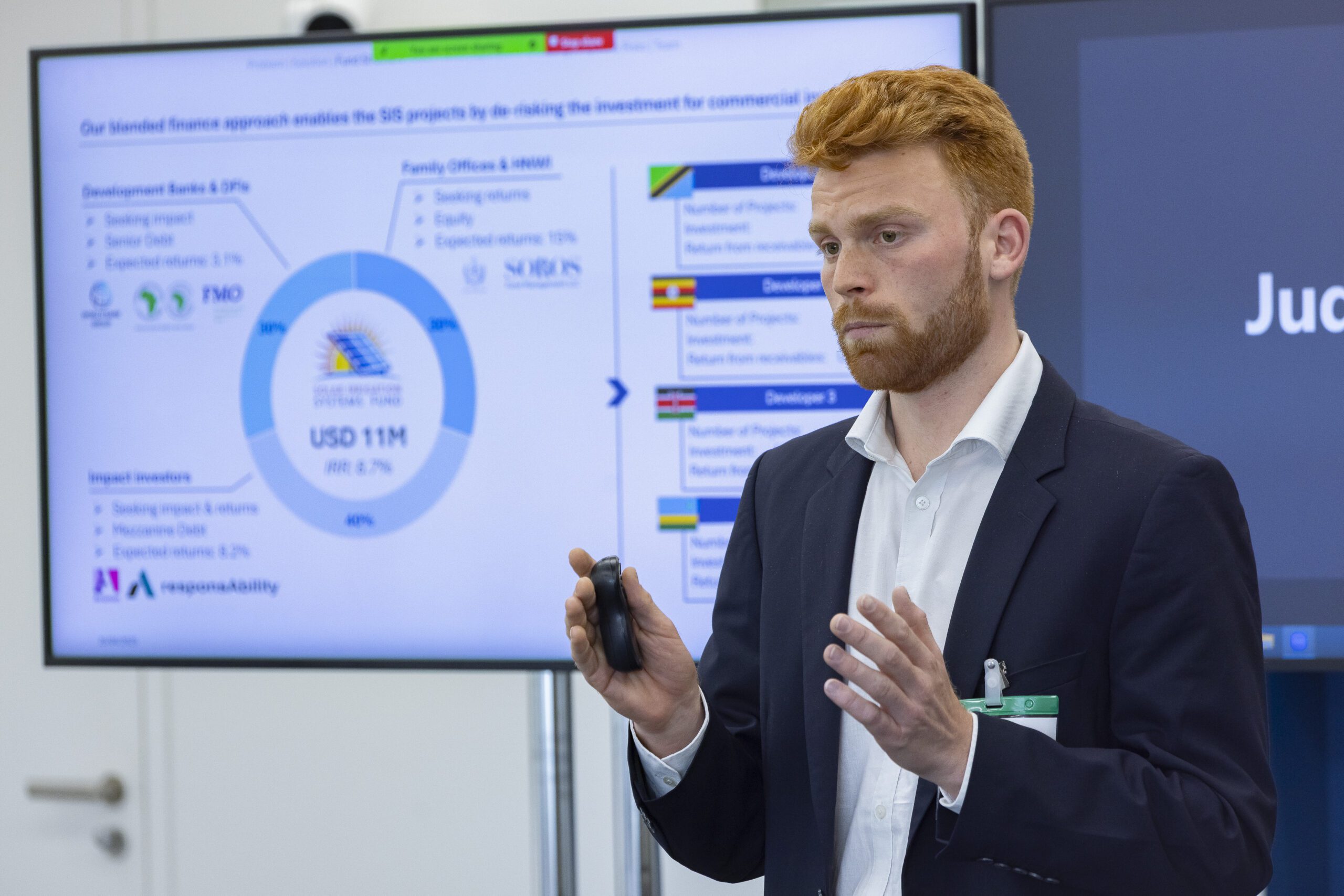
The problem? Harlem residents face high energy costs and health risks from extreme urban heat.
The solution: A bond to finance solar green roofing projects, providing cooling, renewable energy, and public health benefits — while generating returns from carbon credits, tax incentives, and energy-efficiency agreements with landlords.
The problem? Nigerian farmers lose an estimated $4 billion annually due to inadequate cold storage.
The solution: A blended finance vehicle to fund solar-powered, modular cold-storage facilities for smallholder farmers, reducing spoilage and stabilizing incomes.
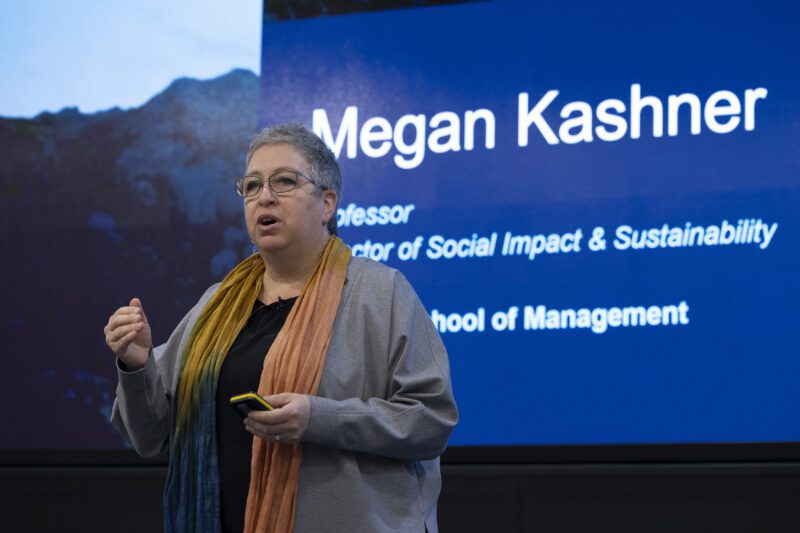
Megan Kashner, Professor and Director of Social Impact & Sustainability at Northwestern’s Kellogg School of Management
The problem? In Fiji, limited educational access constrains workforce opportunities beyond tourism.
The solution: An impact bond backed by tourism tax revenue, financing teacher training, student loans, and digital learning tools to strengthen youth education and economic mobility.
These are just a few of the imaginative solutions presented by the finalists of the 2025 Kellogg–Morgan Stanley Sustainable Investing Challenge, an academic competition that invites graduate student teams from around the world to pitch creative financing approaches to pressing social and environmental problems.
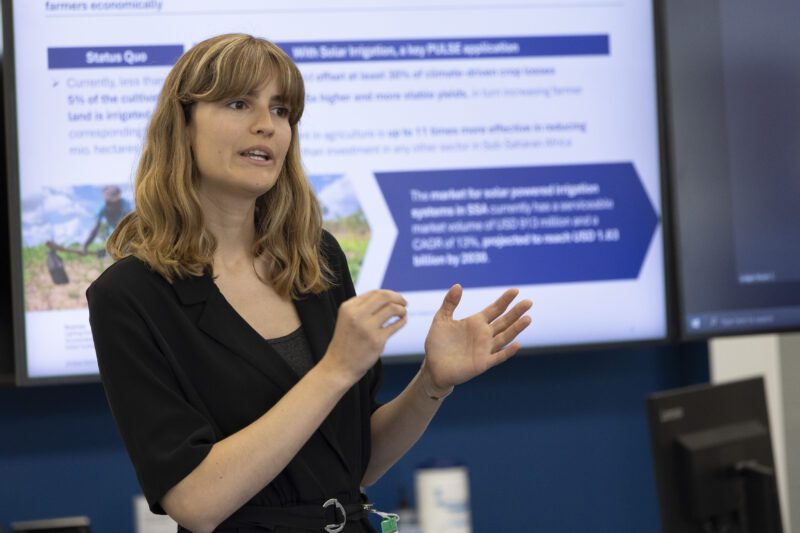
Since 2011, the Challenge has offered students a rare opportunity to explore sustainable investing in a rigorous, high-stakes setting. Finalist teams are selected not only for the strength of their ideas, but also for how well they apply investment thinking to generate measurable, scalable impact. Participants also benefit from a Master Class lecture series led by industry experts, covering everything from problem identification to structuring capital stacks.
This year, 545 students from 89 schools and 65 countries submitted proposals — 158 teams in total.
“The initial vision was to harness the creativity of top graduate students around the globe by challenging them to design investment vehicles that would simultaneously create sustainable impact and financial return for institutional investors,” said Megan Kashner, Professor and Director of Social Impact & Sustainability at Northwestern’s Kellogg School of Management. “That was unprecedented in 2011. There were business plan competitions, startup pitch competitions — but no opportunities for students to explore the creative use of finance to address urgent social needs.”
“Each year, this competition reaffirms what we already know — the talent, drive, and fresh thinking of today’s graduate students are key to tackling our most urgent global problems,” said Dave Chen, Professor of Finance at Kellogg, CEO of Equilibrium Capital, and founder of the Challenge. “This year’s winners and finalists aren’t just proposing solutions for tomorrow; they’re showing what’s possible today.”
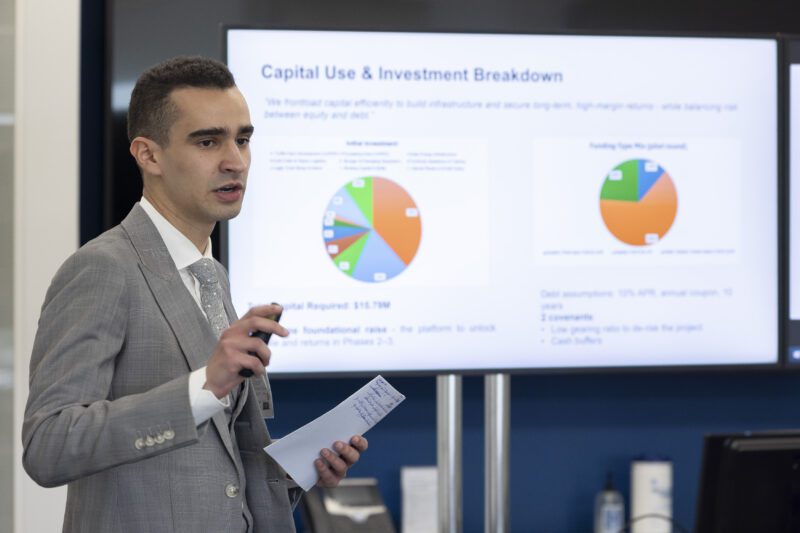
This year, 545 students from 89 schools and 65 countries submitted proposals — 158 teams in total. Twelve finalists were selected by a panel of sustainable investing professionals, with the top three traveling to London to pitch their proposals to senior industry leaders.
Great ideas are just the beginning. As anyone who’s launched a fund knows, success also requires investor interest, effective asset management, and structures that LPs can trust. Complexity can be a deterrent — and sometimes, so can novelty.
Still, Kashner remains optimistic: “None of these ideas are impossible. Each of them represents a financing approach to scalable and replicable solutions.”
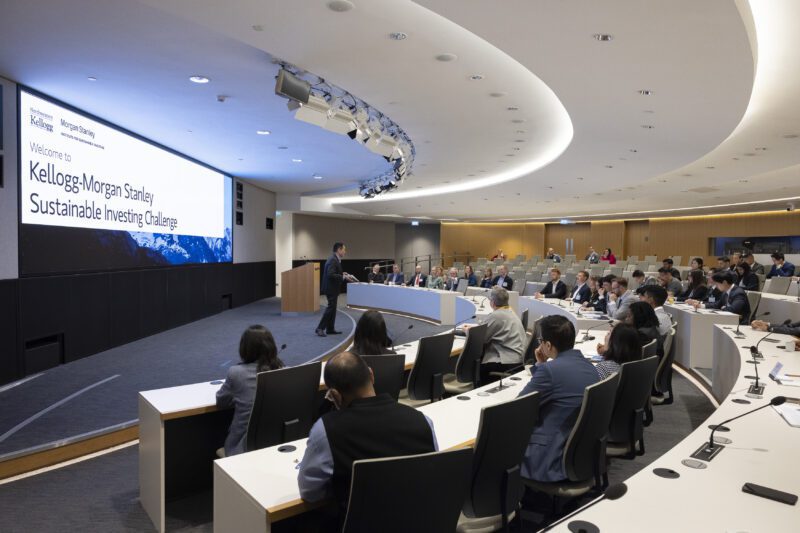
A key advantage of the Challenge is the freedom it gives students to think expansively — without the constraints that often inhibit practitioners, such as risk aversion or resistance to experimentation. These students, many of whom have grown up amid accelerating climate and social crises, bring urgency, creativity, and perspective shaped by personal experience.
“What the industry often does is fall in love with a solution rather than the problem,” Kashner explained. “We are helping students focus on understanding the problem in its full context—and then using finance to unlock creative solutions. Once you’ve identified both, scale becomes possible.”
A curriculum focused not just on deal mechanics but on systems change, systems thinking, and system-level investment.
Kashner believes this blend of systems thinking and entrepreneurial imagination is exactly what’s needed to evolve the sustainable investing field. And higher education is rising to meet that challenge.
“Academic programs are now preparing students for careers that integrate deep knowledge of impact and sustainable finance. Whether they go into sustainable investing directly or bring that expertise into broader financial roles, their lived experience and passion will inform how they work.”
If that vision holds true, then institutions like Northwestern, Stanford, Duke, Penn, NYU, and others may be doing more than training future financiers — they may be preparing the next generation of systems-level changemakers.
For Kashner, that means a curriculum focused not just on deal mechanics but on systems change, systems thinking, and system-level investment.
“If you’re investing for both financial return and impact, you need to understand the complex systems underpinning those challenges.”
—
Disclosure: The author has volunteered as a judge and mentor for the Kellogg–Morgan Stanley Sustainable Investing Challenge in the past two years but was not involved in judging this year’s competition.
Related Content
Comments
Deep Dives
RECENT
Editor's Picks
Webinars
News & Events
Subscribe to our newsletter to receive updates about new Magazine content and upcoming webinars, deep dives, and events.
Become a Premium Member to access the full library of webinars and deep dives, exclusive membership portal, member directory, message board, and curated live chats.
At Impact Entrepreneur, we champion fearless, independent journalism and education, spotlighting the inspiring changemakers building the Impact Economy. Diversity, equity, sustainability, and democracy face unprecedented threats from misinformation, powerful interests, and systemic inequities.
We believe a sustainable and equitable future is possible—but we can't achieve it without your help. Our independent voice depends entirely on support from changemakers like you.
Please step up today. Your donation—no matter the size—ensures we continue delivering impactful journalism and education that push boundaries and hold power accountable.
Join us in protecting what truly matters. It only takes a minute to make a real difference.
0 Comments